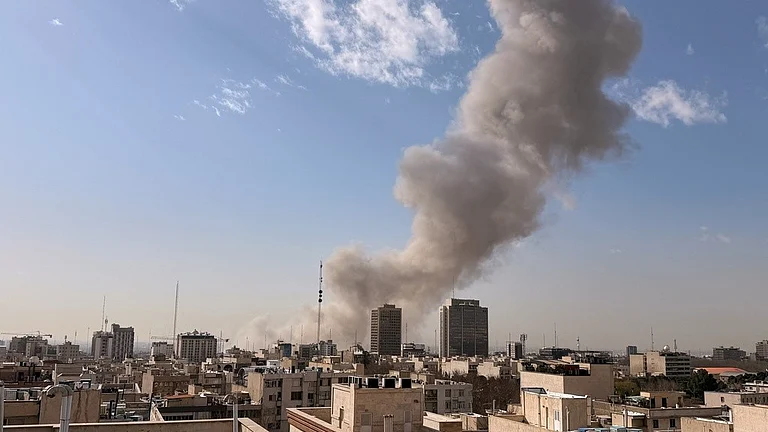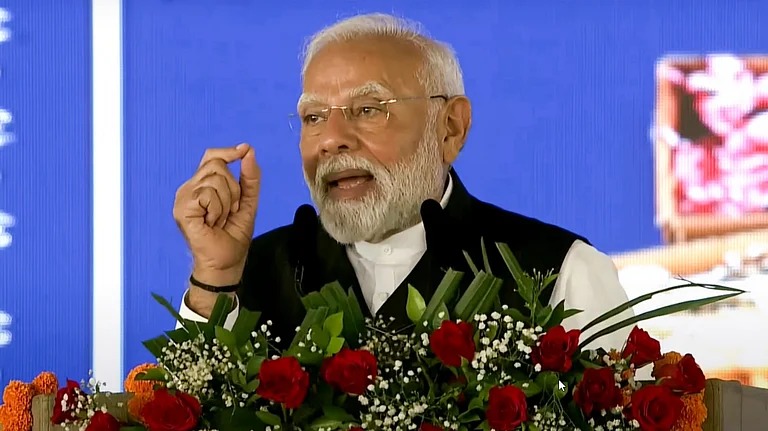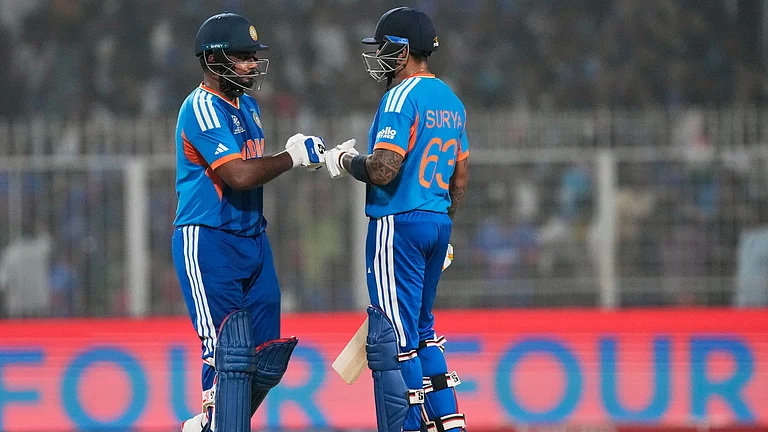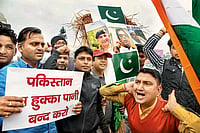As far back as 2003, Justice V.S. Malimath, formerly chief justice of the Karnataka and Kerala high courts, said that the criminal justice system was virtually collapsing and that people were losing confidence in it. The warning went unheeded. No wonder, the ghosts are now coming to haunt us. The entire administrative structure, including the police, came crashing down in Haryana during the reservation agitation in February. The state had, for all practical purposes, withered away for two days. The deployment of the army in the state somehow propped up the government. There is no realisation yet at the highest levels that a similar collapse could happen elsewhere also.
The straws in the wind are in fact already there in UP. The 2013 Muzaffarnagar riots could have been contained in the very initial stages if Lucknow had allowed the district administration to deal with the situation firmly and not interfered. Mathura was a complete mess where land grabbers were allowed to run a parallel establishment with the connivance, if not blessings, of those in power. The Bulandshahr rapes demonstrated the brazenness of the criminals and how unsafe the highways of the state are.
All is not well with our administrative structure. Its police wing particularly seems to be crumbling. The prime minister talked of having a ‘smart’ police—a police which should be strict and sensitive, modern and mobile, alert and accountable, reliable and responsible, techno-savvy and trained. The concept however could never take off for the simple reason that the pre-requisites for the acronym were not worked out.
As far back as 1902, the Police Commission appointed by Lord Curzon recorded: “The police force is far from efficient, it is defective in training and organisation, it is inadequately supervised, it is generally regarded as corrupt and oppressive, and it has utterly failed to secure the confidence and cordial cooperation of the people.” It went on to say: “The police force throughout the country is in a most unsatisfactory condition, that abuses are common everywhere, that this involves great injury to the people and discredit to the government, and that radical reforms are urgently necessary.”

Reading these records, one gets the impression that the observations were perhaps made by a recently appointed commission. A hundred and fourteen years have apparently made no difference to the general perception of the police. Time appears to have stood still for the police. The struggle for reforms, the need for which was felt as far back as 1902-03, continues to this day.
At the dawn of independence, it was expected that a new philosophy of life would be laid down for the police and that it would be transformed into an instrument of service to the people. Tragically, that did not happen. The colonial model of police was retained. The absurdity had to explode one day. During the Emergency (1975-77), the police, as recorded by the Shah Commission, “was used and allowed themselves to be used for purposes, some of which were, to say the least, questionable” and that “some police officers behaved as if they are not accountable at all to any public authority”.
The National Police Commission appointed in 1977 deplored that there had been no comprehensive review of the police system despite “radical changes in the political, social and economic situation in the country”. The NPC submitted eight detailed reports between 1979 and 1981 containing comprehensive recommendations covering the entire gamut of police working. These, however, received no more than cosmetic treatment at the hands of the government of India. The political executive had by this time tasted blood and was not prepared to give up its stranglehold over an instrument, which, they found, could be used to further their partisan political objectives.
There were two disturbing developments which further eroded the credibility of the police. The force gradually became politicised. The majority of officers carried an invisible stamp over their foreheads of their loyalty to a particular group. As a result, every time there was a change of government, there would be wholesale changes at the officer level. The second development was more horrendous—there was gradual criminalisation of a section of the force. What was even worse, as pointed out by the Vohra Committee in 1993, was the nexus that developed between criminals, politicians, bureaucrats and policemen, and the mafia started “virtually running a parallel government, pushing the state apparatus into irrelevance”. There was no serious attempt to dismantle the nexus, which has become very powerful today.
The battle for police reforms was fortunately not given up. Knowing fully well that the executive would not relent in its hold over the police, a PIL was filed in 1996. It took ten years but at the end of it, there was a landmark judgment by the Supreme Court on September 22, 2006. The apex court gave directions to insulate the police from extraneous influences, gave it a fair measure of authority over personnel matters and instituted a mechanism to ensure its greater accountability. The court also prescribed a procedure for the appointment of the DGP, gave fixed tenure to all officers on operational duties and directed that investigation of crime and enforcement of law and order be separated in metro towns.
The political executive indulged in the worst kind of skulduggery to frustrate the judicial directions. Several states (17) passed legislations to circumvent the implementation of the court’s orders and others passed executive orders which diluted the letter and spirit of the court’s directions. For the last ten years, the court has been monitoring the implementation of its directions. A committee headed by Justice Thomas expressed its “dismay over the total indifference to the issue of reforms in the functioning of the police being exhibited by the states” in 2010. Later, the justice Verma Committee (2013), which was constituted to examine Amendments to Criminal Law, urged “all states to fully comply with all six Supreme Court directives” but the appeal went unheeded.
It is a sad commentary that orders issued by the highest court of the land are treated with such contempt by state governments. The Supreme Court’s directions, it needs to be emphasised, are to give better security and protection to the people of the country, uphold their human rights and improve governance. If they are sincerely implemented, the present ‘ruler’s police’ will be transformed into the ‘people’s police’.
Police reforms are absolutely essential if India is to emerge as a progressive modern state. What is at stake is not merely the structure and organisation of police, but the very future of democracy. If the politicisation and criminalisation of police continues and, alongside, persons of questionable antecedents continue to increase their numbers in the state assemblies and the Parliament, it is only a matter of time before the democratic structure would collapse. It also needs to be understood that the economic development of the country would suffer a setback if the police are not reorganised and rejuvenated. No one likes to invest in areas where law and order is not stable and where returns are not assured. The superstructure of economic development needs solid foundations of good administration, particularly good policing.
The internal security problems of the country are, with every passing decade, becoming more complex. Separatist and secessionist movements are threatening to tear apart the fabric of our democracy. The police are in the forefront of this battle. They need more manpower, better resources, modern transport, sophisticated communications, adequate forensic support and, above all, what the Second Administrative Reforms Commission called “functional autonomy”.
When would the political executive wake up to the need, relevance and urgency of police reforms? Delhi witnessed the massacre of Sikhs in 1984 because the police were hesitant to act against the hooligans belonging to the ruling party. Haryana witnessed a complete collapse of its administrative structure during the recent reservation agitation. Are we waiting for similar tragedies and disasters to overwhelm the country before we understand the importance of having a reformed, reorganised and restructured police, which would give supreme importance to upholding the rule of law?
(The writer, a former director general of the BSF, DGP UP and DGP Assam, has been campaigning for police reforms for the last twenty years.)
Slide Show
In February this year, the Jat agitation for reservation in Haryana turned into a full-fledged riot resulting in the collapse of the state machinery. The Prakash Singh Committee report, which was prepared after the violence, heavily criticised the state police for its utter failure to control the situation.


























